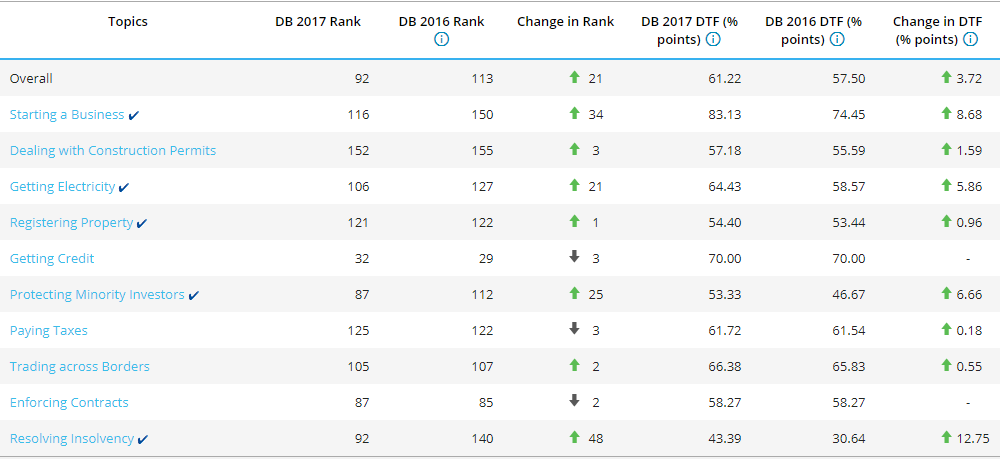Kenya’s SME Sector Being Choked to Death By Tough Political and Economic Environment

Statistics show that 400,000 SMEs die annually in Kenya with almost 90 percent of them not being able to see their second birthday. These statistics mean that more than 30,000 small medium enterprises are dying monthly with more than 1000 of them facing their demise daily.
The small medium enterprise sector in Kenya has been through a tough economic turmoil and if nothing is done soon, the sector will be choked to death, putting the country’s economy on the brink of collapsing. News that close to 2 million MSMEs were closed down in five years to 2016 is worrying and with the prevailing political situation in the country, the sector is already hard hit.
Kenya’s gross domestic product (GDP) for 2017 was projected at 6.4 percent. The projection, though based on numerous assumptions, it based majorly on the performance of micro and small medium enterprises. In Kenya, more than 80 percent of businesses are SME and in 2014, 80 percent of the 800,000 jobs that were created that year were from the informal sector which is dominated by SMEs. With an employment rate standing at 39.1 percent, the highest in the East African region, SMEs play a key role in both the economic development and job creation.
Many Kenyans, relevant authorities involved seem not to be aware of the concept of SME. The Micro and Small Enterprise Act of 2012, micro enterprises in Kenya has to have a maximum annual turnover of 500,000 shillings and have less than 10 people as employees. Small enterprises, on the other hand, have between 500,000 shillings and 5 million shillings of annual turnover and employ between 10 and 49 people. Under the act, the medium enterprises are not covered under this act but have been reported as having a turnover of between 5 million and 800 million shillings and employing 50 to 99 employees.
The informal sector in Kenya, with 90 percent of it being SME, constitute 97 percent of all the businesses in Kenya. All the other remaining business sectors account for less than 3 percent. In a report released by World Bank on the ease of doing business in Kenya for the year 2017, the country ranked 92 in overall with starting a business, dealing with construction permits and getting electricity for business being ranked at 116, 152 and 106 respectively as shown in the image below:
The SME sector in Kenya is facing numerous challenges. In the Kenya Economic Outlook 2017 report released by Deloitte, corruption is a major impediment to doing business in Kenya with allegations of misappropriation of public funds on the rise. The 2016 Corruption Perception Index released by Transparency International (TI) ranked Kenya among the most corrupt countries at 145 out of 176 countries. The EIU expects a boost in accountability especially at the county Government level following implementation of stronger checks and balances.
Lack of credit is a major challenge for most SMEs in Kenya. This has been a key constraint in the operations of most SMEs in the country where underdeveloped capital market forces small medium enterprises to rely on self-financing or borrowing from friends and relatives since most financial institutions are reluctant to give them a hand. Other challenges tied to credit include the high cost of credit, high bank charges, and fees.
Other challenges include inadequate skills, insecurity especially during political years like 2017. Kenya has always been a politically charged country with businesses, most of the SMEs being on the receiving end. Politics have had a devastating impact on the SME sector in Kenya. For instance, when the Supreme Court of Kenya nullified the 2017 presidential elections, in less than 10 minutes, the stock market lost a whopping 50 billion shillings, plunging the whole stock market into a 9.71 percent hole with the shilling weakening by 0.44 percent. This was in less than 10 minutes. According to KEPSA, Kenya’s business sector has already lost more than 100 billion shillings from the period the Supreme Court nullified the presidential election.
What is more, during political demonstrations, businesses are always at the mercy of the demonstrators. ‘Angry’ and ‘hungry’ demonstrators often opt for businesses as a way of expressing themselves through looting and destruction. The SME sector is ailing. We console ourselves that more SMEs are upcoming every day but equally the same number is dying daily.
About Juma
Juma is an enthusiastic journalist who believes that journalism has power to change the world either negatively or positively depending on how one uses it.(020) 528 0222 or Email: info@sokodirectory.com
- January 2025 (119)
- February 2025 (191)
- March 2025 (212)
- April 2025 (193)
- May 2025 (161)
- June 2025 (157)
- July 2025 (226)
- August 2025 (211)
- September 2025 (270)
- October 2025 (162)
- January 2024 (238)
- February 2024 (227)
- March 2024 (190)
- April 2024 (133)
- May 2024 (157)
- June 2024 (145)
- July 2024 (136)
- August 2024 (154)
- September 2024 (212)
- October 2024 (255)
- November 2024 (196)
- December 2024 (143)
- January 2023 (182)
- February 2023 (203)
- March 2023 (322)
- April 2023 (297)
- May 2023 (267)
- June 2023 (214)
- July 2023 (212)
- August 2023 (257)
- September 2023 (237)
- October 2023 (264)
- November 2023 (286)
- December 2023 (177)
- January 2022 (293)
- February 2022 (329)
- March 2022 (358)
- April 2022 (292)
- May 2022 (271)
- June 2022 (232)
- July 2022 (278)
- August 2022 (253)
- September 2022 (246)
- October 2022 (196)
- November 2022 (232)
- December 2022 (167)
- January 2021 (182)
- February 2021 (227)
- March 2021 (325)
- April 2021 (259)
- May 2021 (285)
- June 2021 (272)
- July 2021 (277)
- August 2021 (232)
- September 2021 (271)
- October 2021 (304)
- November 2021 (364)
- December 2021 (249)
- January 2020 (272)
- February 2020 (310)
- March 2020 (390)
- April 2020 (321)
- May 2020 (335)
- June 2020 (327)
- July 2020 (333)
- August 2020 (276)
- September 2020 (214)
- October 2020 (233)
- November 2020 (242)
- December 2020 (187)
- January 2019 (251)
- February 2019 (215)
- March 2019 (283)
- April 2019 (254)
- May 2019 (269)
- June 2019 (249)
- July 2019 (335)
- August 2019 (293)
- September 2019 (306)
- October 2019 (313)
- November 2019 (362)
- December 2019 (318)
- January 2018 (291)
- February 2018 (213)
- March 2018 (275)
- April 2018 (223)
- May 2018 (235)
- June 2018 (176)
- July 2018 (256)
- August 2018 (247)
- September 2018 (255)
- October 2018 (282)
- November 2018 (282)
- December 2018 (184)
- January 2017 (183)
- February 2017 (194)
- March 2017 (207)
- April 2017 (104)
- May 2017 (169)
- June 2017 (205)
- July 2017 (189)
- August 2017 (195)
- September 2017 (186)
- October 2017 (235)
- November 2017 (253)
- December 2017 (266)
- January 2016 (164)
- February 2016 (165)
- March 2016 (189)
- April 2016 (143)
- May 2016 (245)
- June 2016 (182)
- July 2016 (271)
- August 2016 (247)
- September 2016 (233)
- October 2016 (191)
- November 2016 (243)
- December 2016 (153)
- January 2015 (1)
- February 2015 (4)
- March 2015 (164)
- April 2015 (107)
- May 2015 (116)
- June 2015 (119)
- July 2015 (145)
- August 2015 (157)
- September 2015 (186)
- October 2015 (169)
- November 2015 (173)
- December 2015 (205)
- March 2014 (2)
- March 2013 (10)
- June 2013 (1)
- March 2012 (7)
- April 2012 (15)
- May 2012 (1)
- July 2012 (1)
- August 2012 (4)
- October 2012 (2)
- November 2012 (2)
- December 2012 (1)



